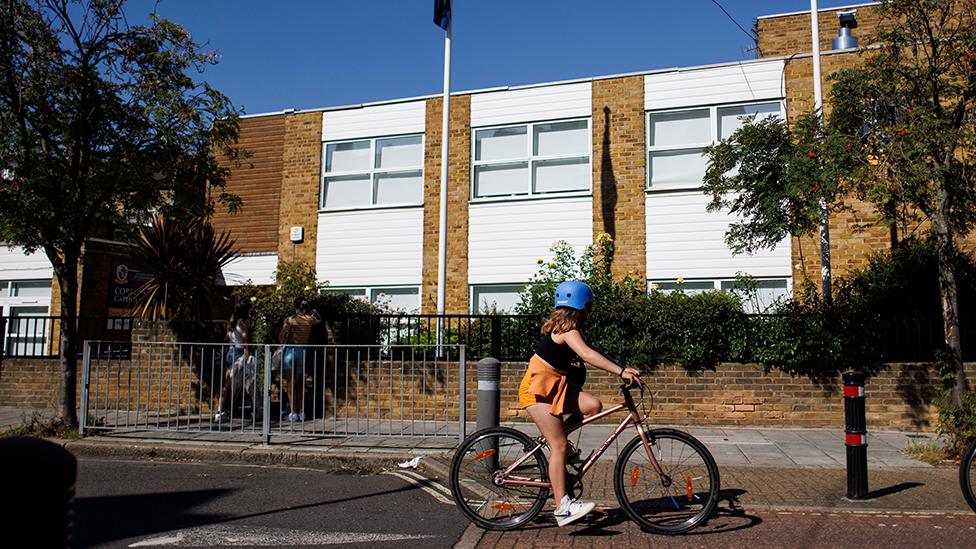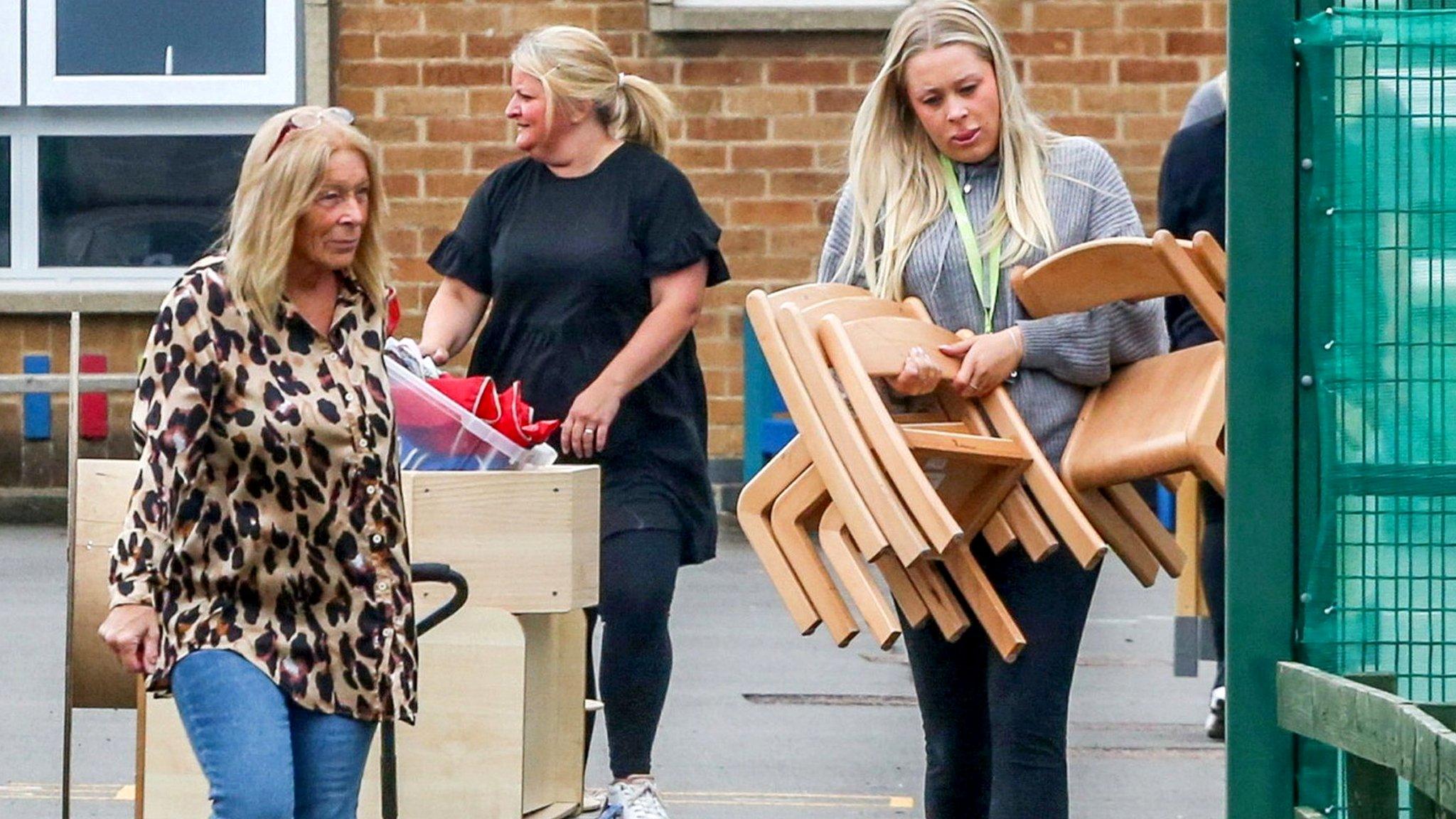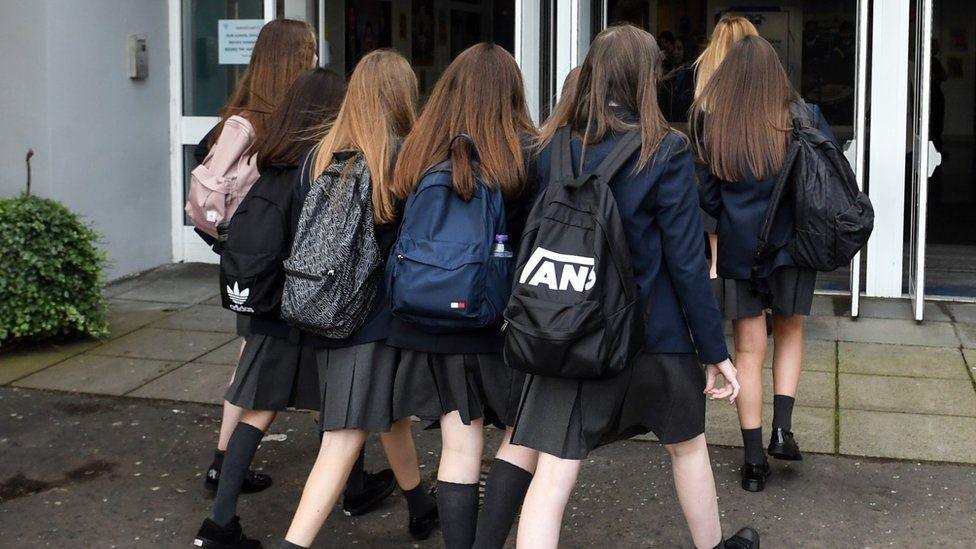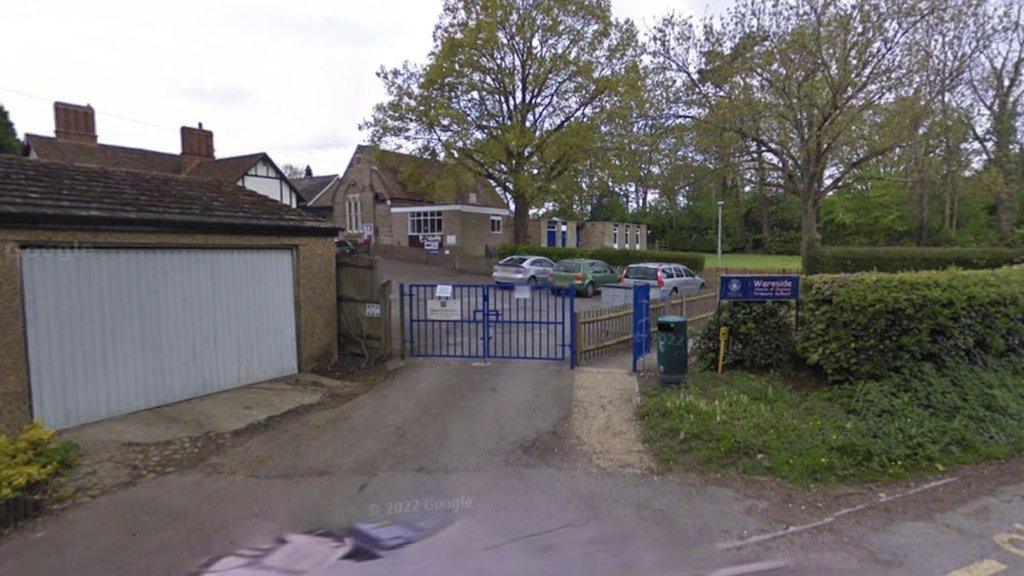RAAC concrete: More Hertfordshire schools surveyed
- Published

Hertfordshire County Council said more than 100 school buildings built between1935 and 1995 were being surveyed following government advice
More than 100 Hertfordshire schools are undergoing surveying to check on potentially dangerous concrete building materials.
The government has urged 150 schools across England the contain reinforced autoclaved aerated concrete (RAAC) to close affected buildings.
Herts County Council said no schools in its area would need to close as a result of this recommendation.
However 120 school buildings in the county would now be surveyed.
RAAC is a lightweight material used in the construction of schools and other public buildings.
There are now mounting concerns that this material could be prone to collapse and weaker than other forms of concrete building materials.
The Department for Education said taking a cautious approach was "the right thing to do".
Secretary of State for Education, Gillian Keegan. said: "Nothing is more important than making sure children and staff are safe in schools and colleges, which is why we are acting on new evidence about RAAC now, ahead of the start of term."
The DfE urged schools across England that had buildings constructed between 1935 and 1995 should carry out structural surveys.
Earlier surveys carried out between 2020 and 2021 by Hertfordshire County Council identified three schools with RAAC, built between 1959 and 1985, that were in need of remedial work, which it said was completed in 2022.
However the latest advice from DfE meant 120 schools in the county would also need to be surveyed, and the local authority said the work was under way.
Academies and voluntary aided schools will be responsible for their own surveys and any subsequent remedial work.

Find BBC News: East of England on Facebook, external, Instagram, external and Twitter, external. If you have a story suggestion email eastofenglandnews@bbc.co.uk
Related topics
- Published13 February 2024

- Published31 August 2023

- Published28 June 2023

- Published22 March 2022
